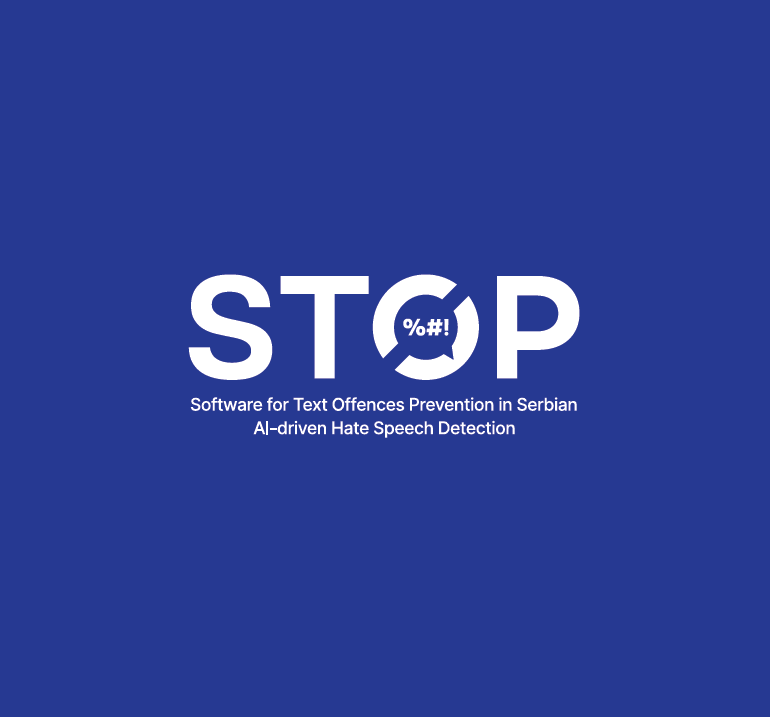News
The latest news from our project team will be published in this section.
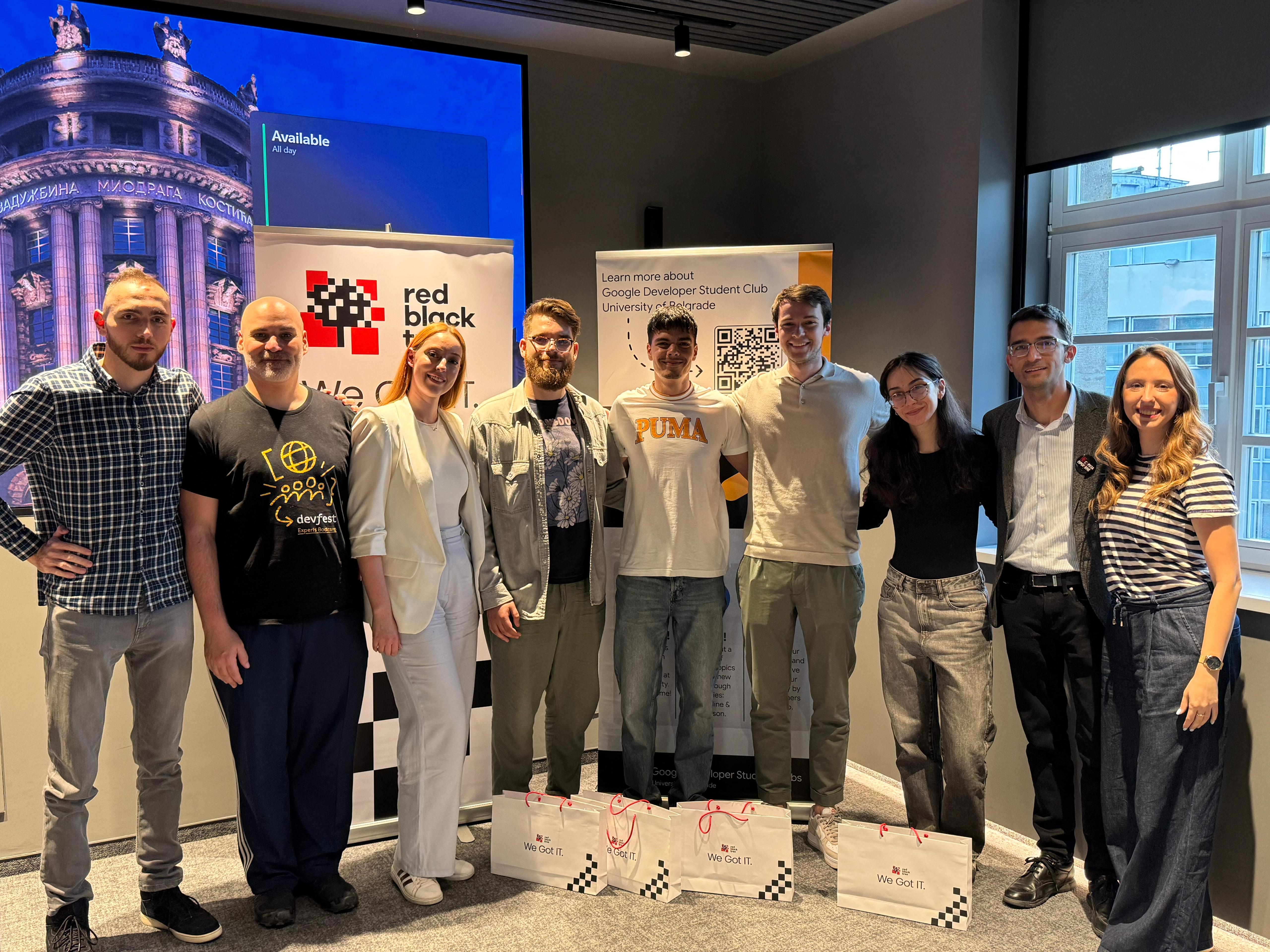
A Weekend Full of Innovation: The “Build with AI” Hackathon Successfully Held!
05.05.2025.
📢 "Build with AI", an innovative student hackathon, was held on May 3–4, 2025,
at the Palace of Science, organized by the Google Developer Group on Campus, University of Belgrade,
and the Laboratory for Data Analysis and Applied AI at the School of Electrical Engineering.
Ten teams participated, and after 36 hours of intense work, nine presented their projects.
The winners were:
🥇 Vibe Coders – Safe Space
🥈 Charmander – Better Search
🥉 Debug Divas – Lumi & VTŠ AppsTeam – Hate Guard
Congrats to all the teams for their creativity and effort!
Special thanks to Gerard Sans, Dr Dražen Drašković, Vanja Milutinović, and our STOP team: Dr Vladimir Jocović and Jelica Cincović.
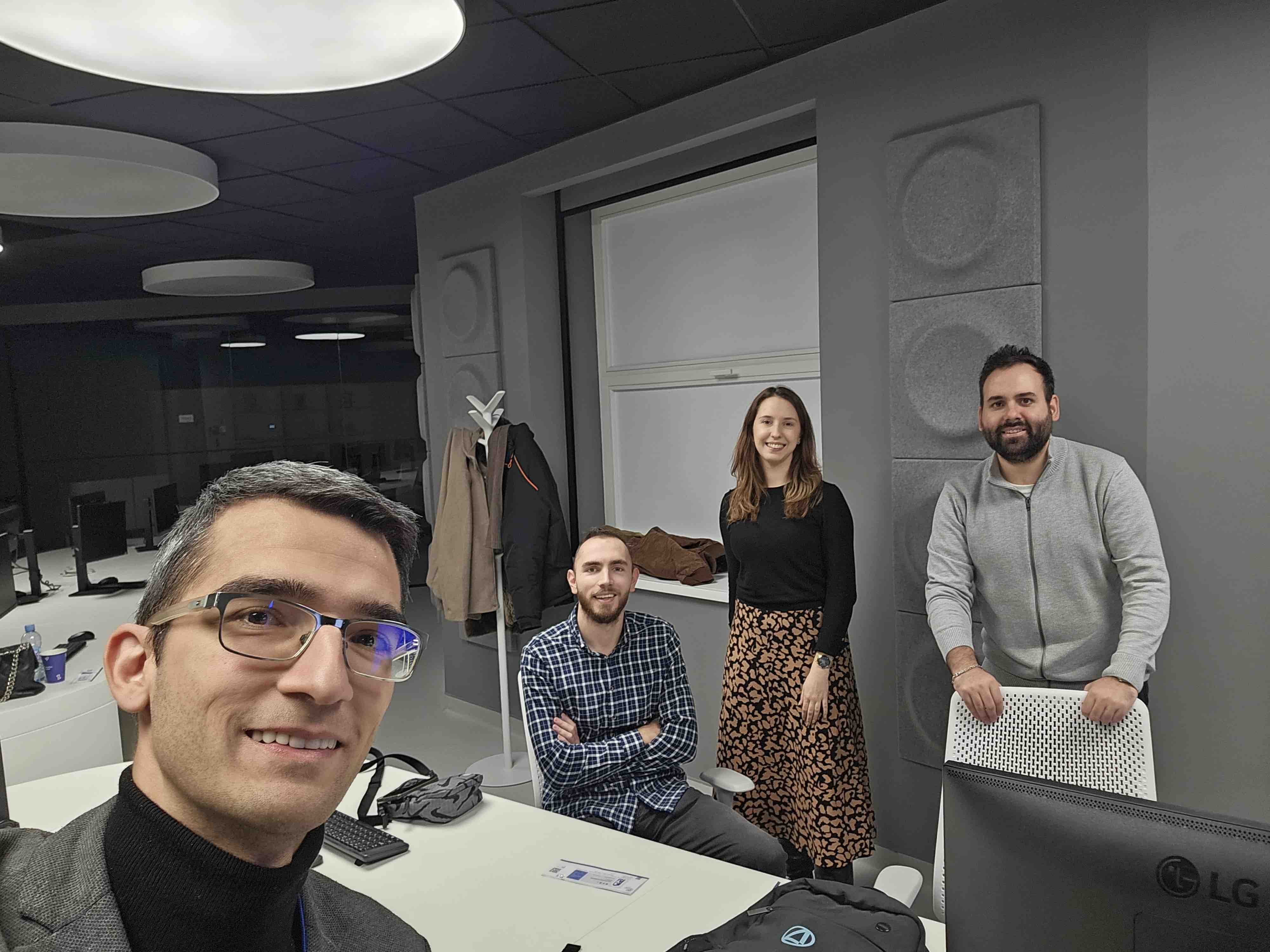
Visit to the center for the application of artificial intelligence within the Palace of Science
17.01.2025.
📢 Today, we held our regular monthly meeting in our new research laboratory for applied artificial intelligence in the beautiful Palace of Science - Miodrag Kostić Foundation in Belgrade. We preprocessed the inconsistent labelled data at our meeting and prepared them for new project activities and the next phase of developing the first models. We also agreed to write new scientific publications in this project quarter. At the end of the day, we toured the permanent exhibition at the Palace of Science and socialized with preschool students to open the magical doors of science to them. We look forward to the year ahead in the new premises, with new challenges in the project, and we wish all the followers a lot of happiness and success.
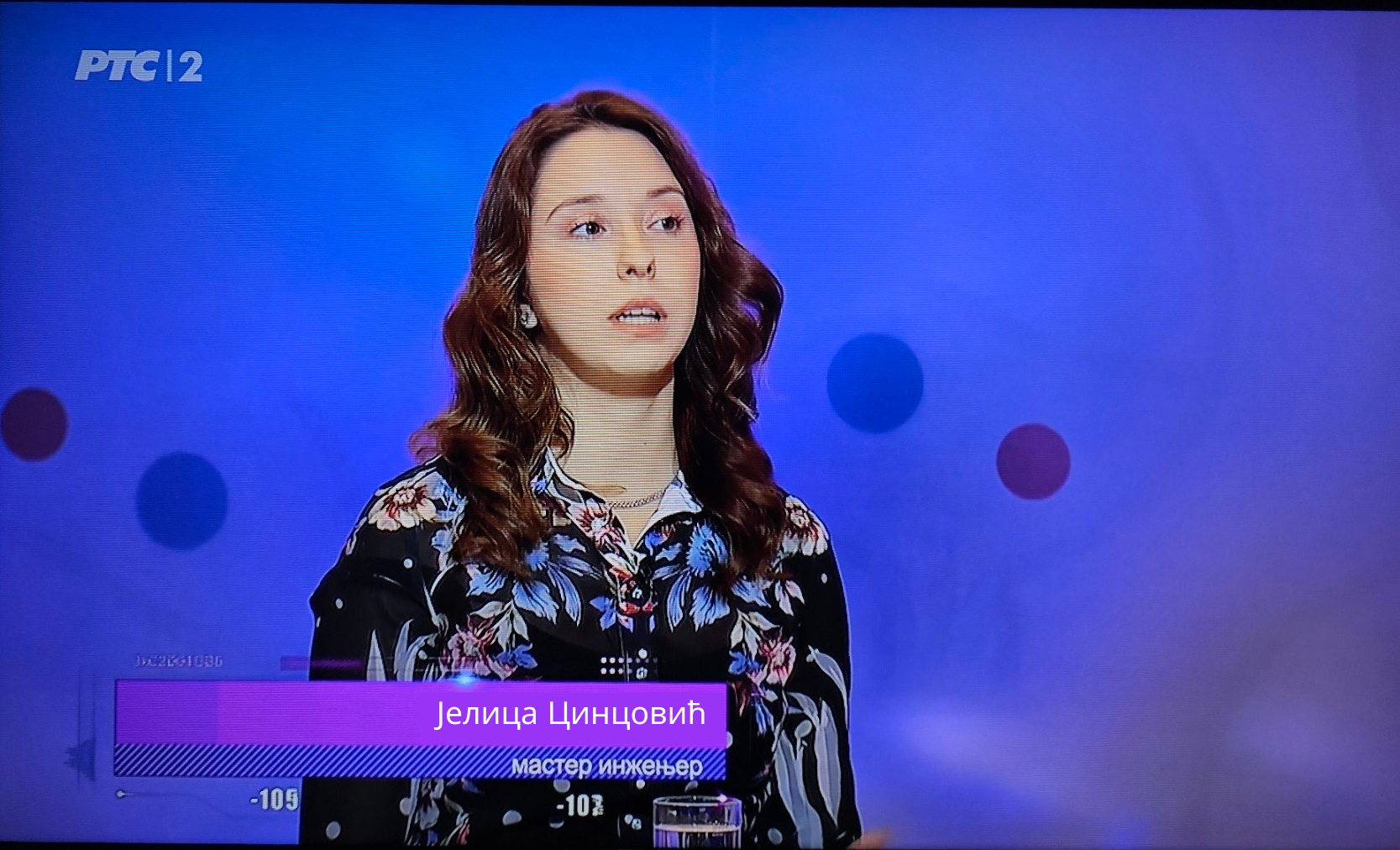
Interview for TV show - Knowledge Studio
07.12.2024.
📢 A member of our team, Jelica Cincović, recently presented the STOP project on the TV show "Knowledge studio". The topic of the show was: Artificial intelligence in education. You can watch the video HERE.
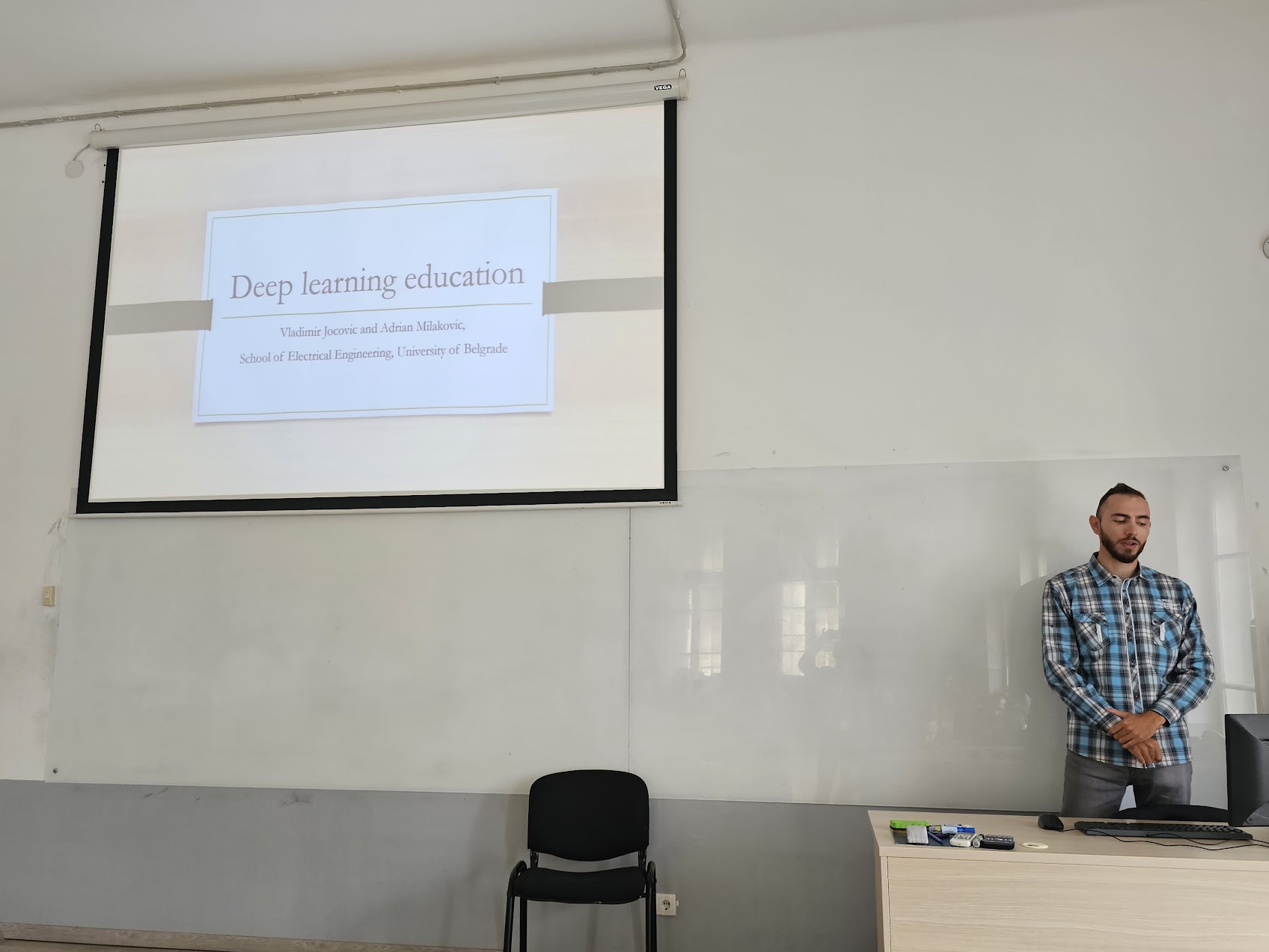
Participation in the CEISEE 2024
03.10.2024.
The 20-th China-Europe International Symposium on Software Engineering Education (CEISEE 2024) has taken place on 2-3 October in Belgrade. The first day of the conference was held at the School of Electrical Engineering, University of Belgrade, and the second day at the Palace of Serbia. Our team members presented their papers and throughout the rich exchange of knowledge with collegues from China, we are poised to embark on exciting new innovative ventures. This collaboration fosters creativity and paves the way for groundbreaking projects.
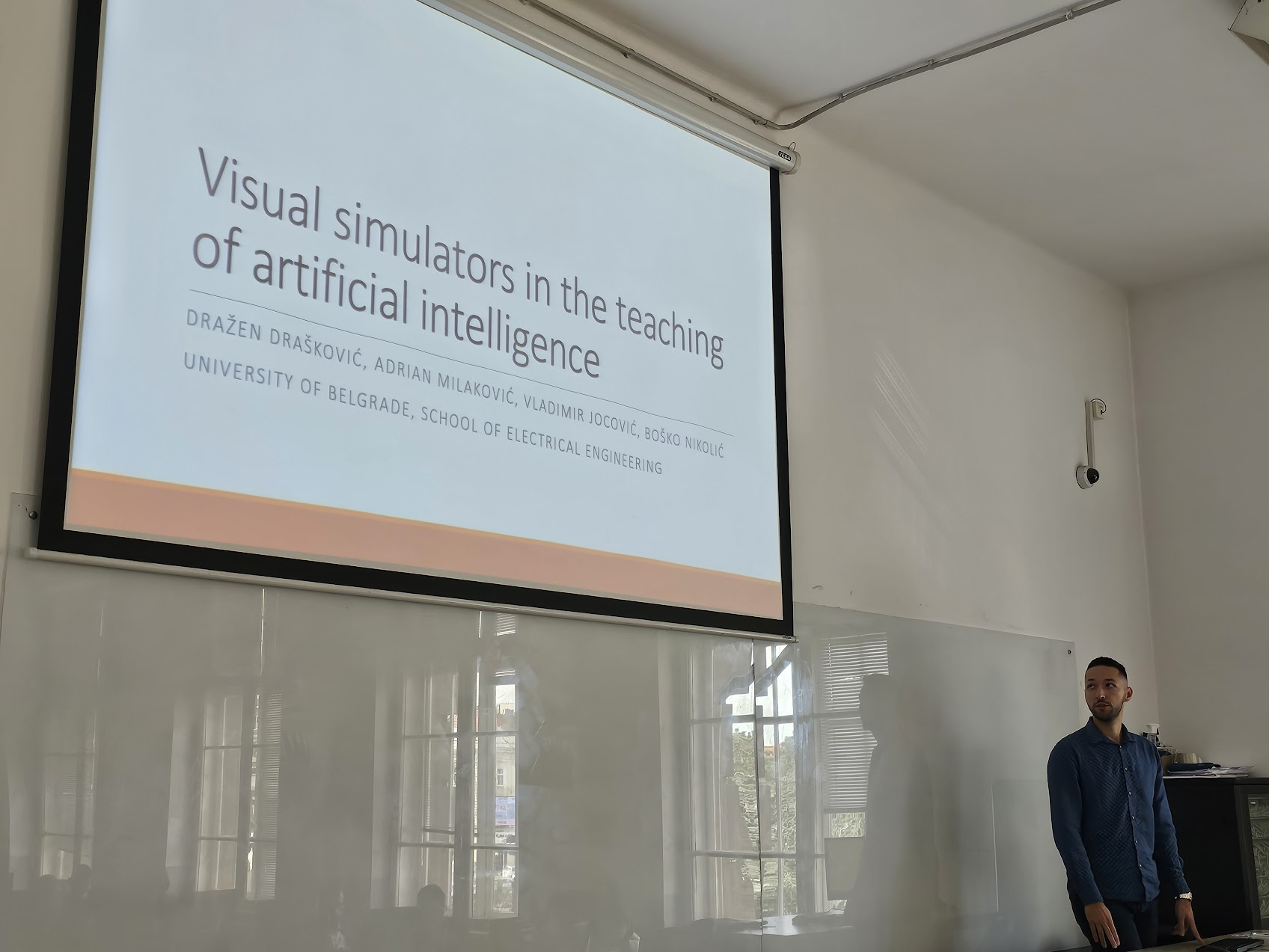
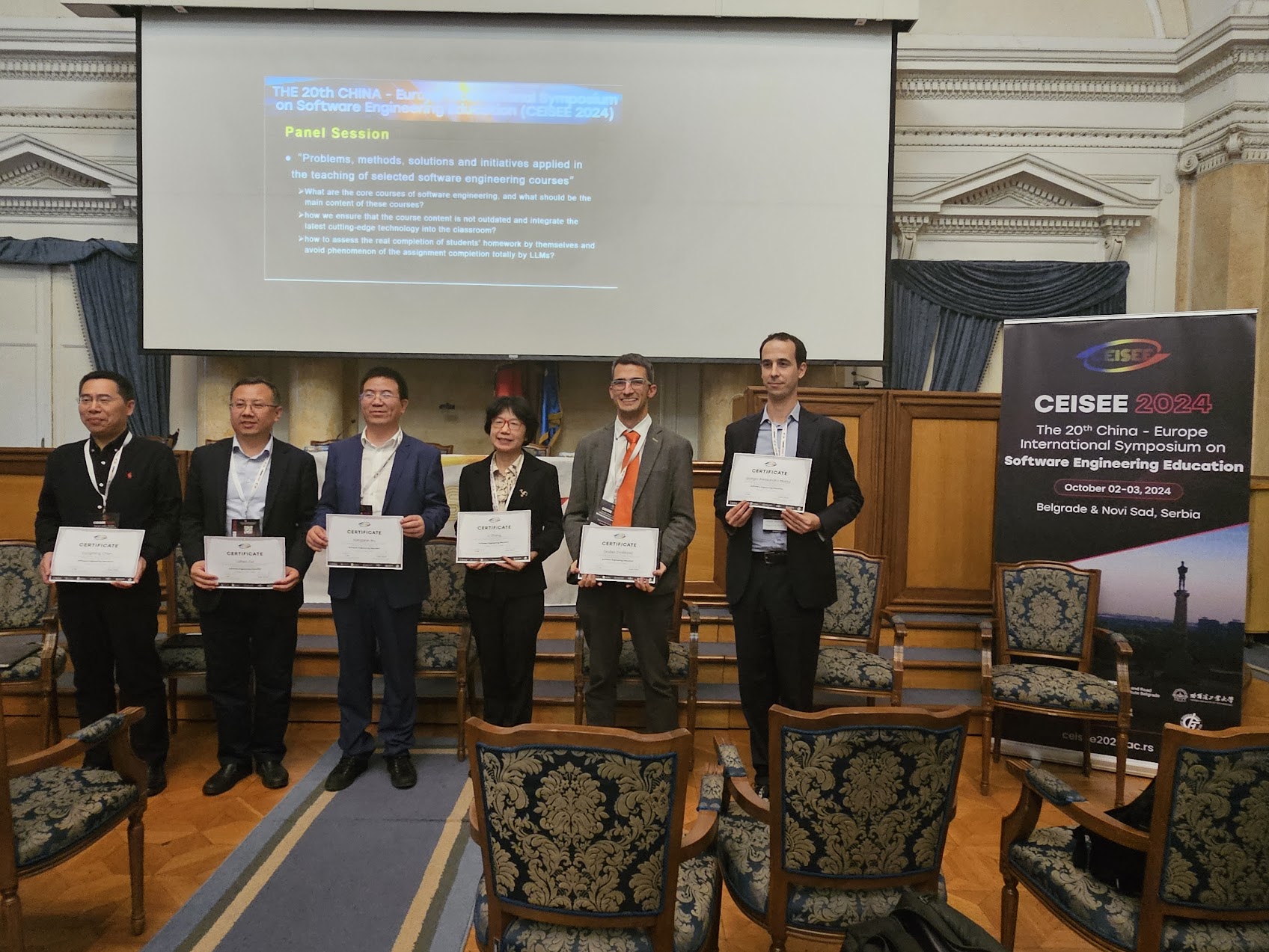
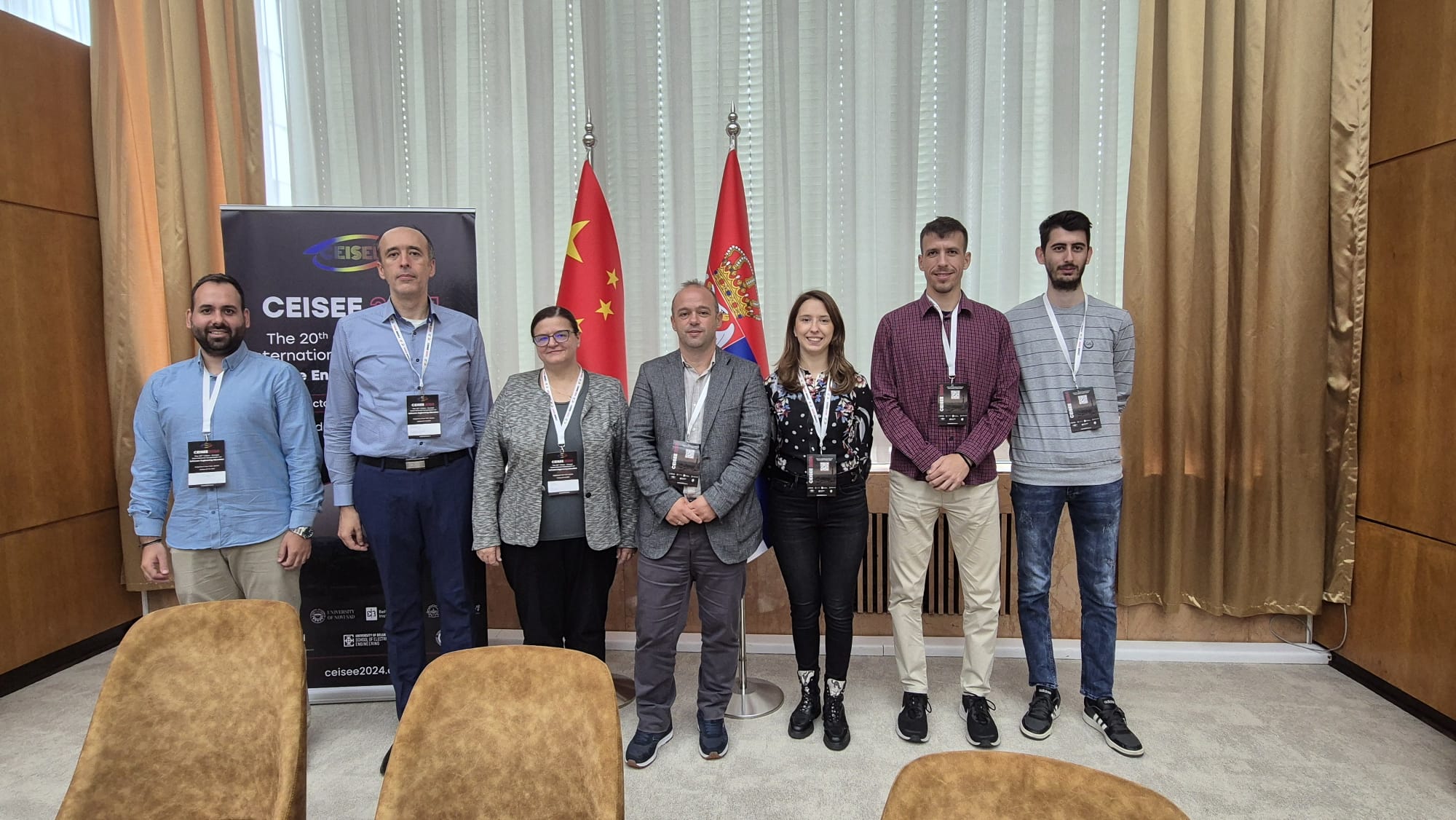
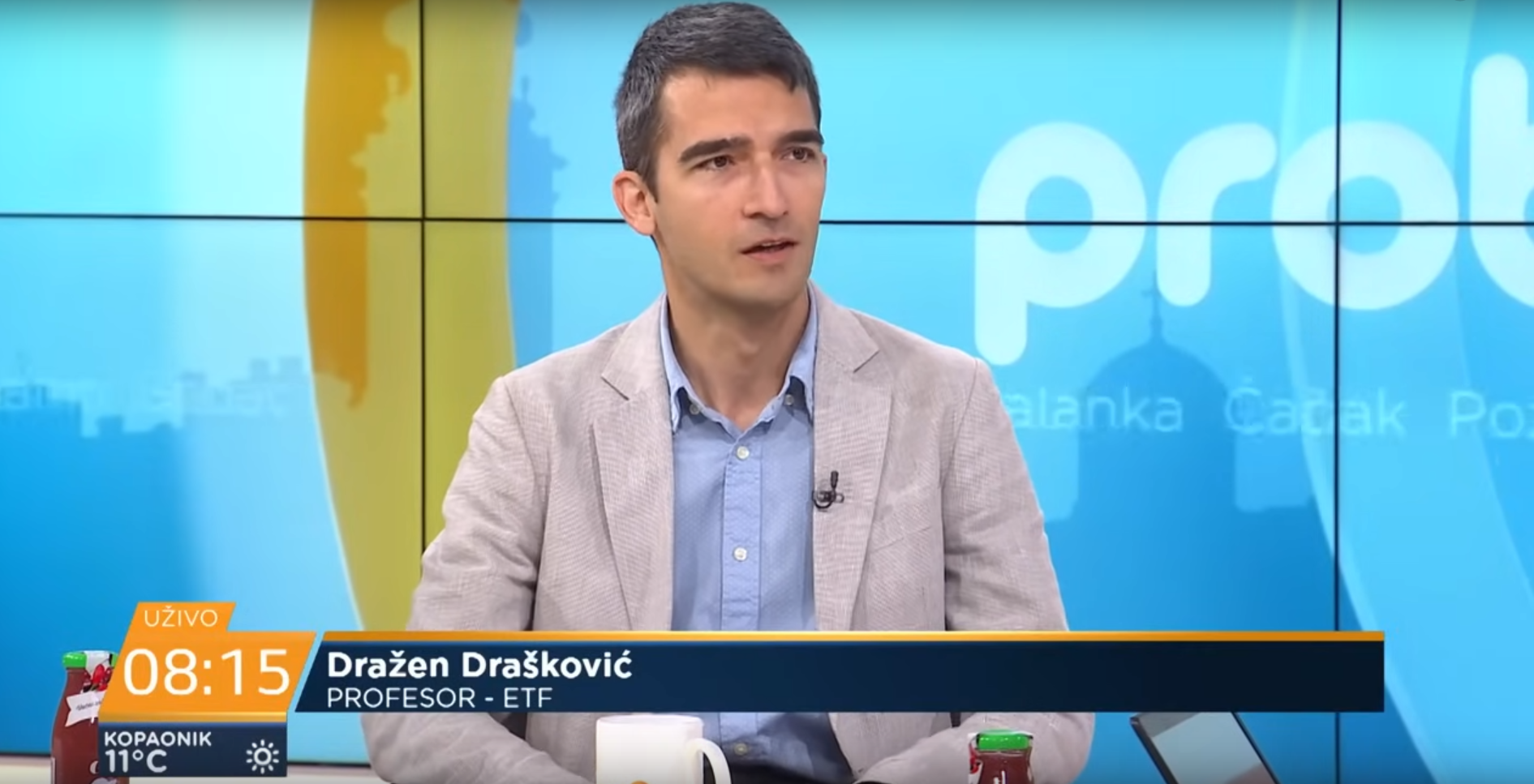
Interview for NOVA TV
15.7.2024.
📢 The principal investigator of our project, Dr. Dražen Drašković was a guest on Nova TV television's morning program, where he spoke about this year's enrollment of high school students at the University of Belgrade, School of Electrical Engineering, the impact of artificial intelligence on information technology, as well as the STOP project, financed by the Science Fund of the Republic of Serbia in which we develop a software system for detecting hate speech in Serbian. He pointed out that the decrease in the number of applicants for IT departments at universities was mostly influenced by depopulation and more than 4 thousand graduates of four-year secondary schools You can watch the video HERE.
Regular monthly project team meeting
2.7.2024.
📢 The STOP project team held a regular monthly meeting at the School of Electrical Engineering 🏫 At the meeting, an analysis of the previous work was done and a semi-annual report was written, which was submitted to the Science Fund. The team concluded that all planned activities were successfully carried out and that all required deliverables were achieved. During the summer, we expect to arrange the database of short texts in the Serbian language and label the data, as well as the completion of the survey scientific paper, which we are preparing for publication in an international journal. Continue to follow our activities!
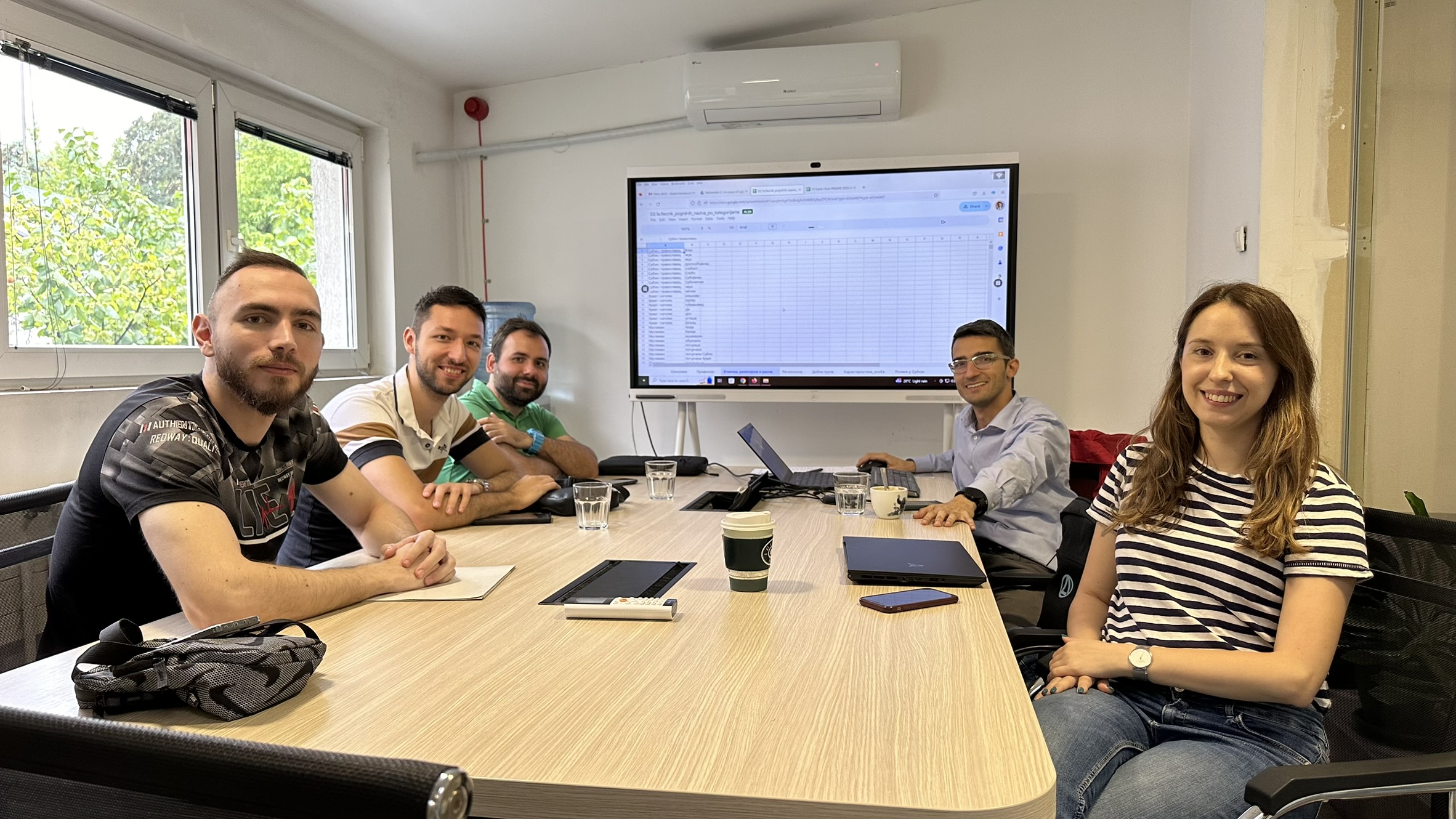
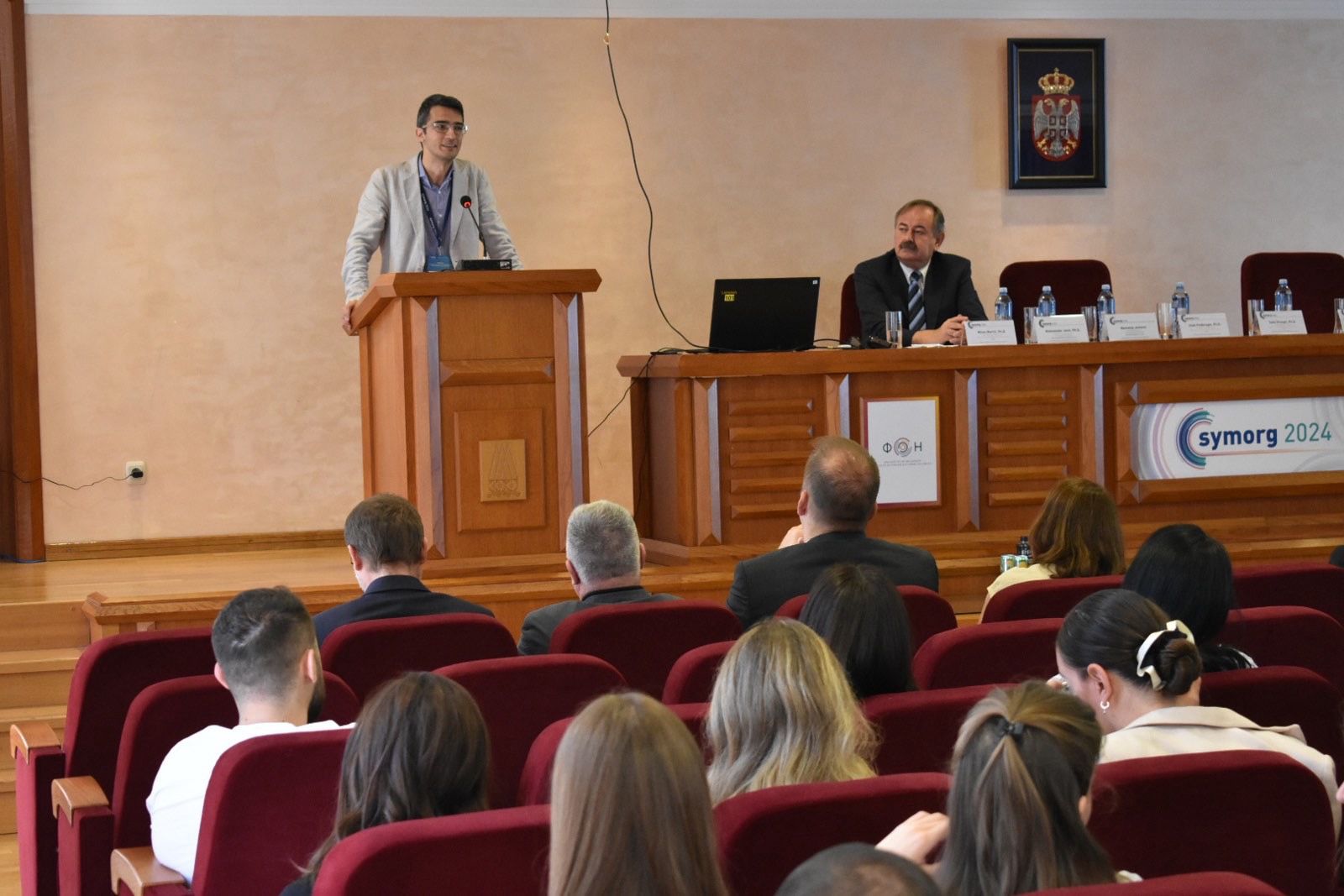
Participation in the round table of the XIX International Symposium - "SymOrg 2024"
15.6.2024.
On Saturday, June 15, 2024, as part of the XIX international symposium SymOrg 2024, the Faculty of Organizational Sciences organized a panel (round table). The panel's topic was "Synergy of Humans and Technology in Higher Education," and Dr. Dražen Drašković, head of our STOP project, participated in the panel among deans and faculty representatives from the entire region. Dr. Drašković spoke about the extraordinary cooperation between the School of Electrical Engineering (ETF) and the Faculty of Organizational Sciences (FON) in Belgrade on joint master's studies in digital transformation, the challenges that arose in teaching with the introduction of artificial intelligence tools and during the coronavirus pandemic, and he also highlighted the new software systems that we are developing within Laboratories for data analysis and application of artificial intelligence, including a tool from the STOP project.
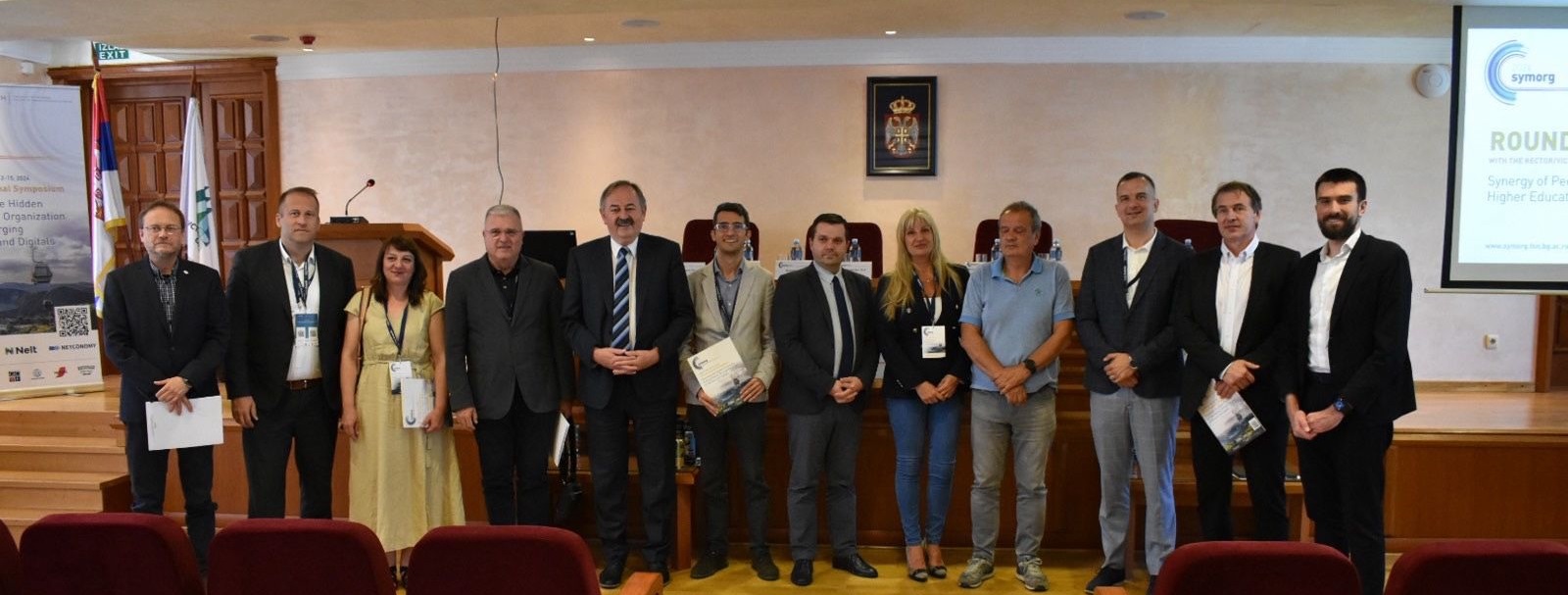
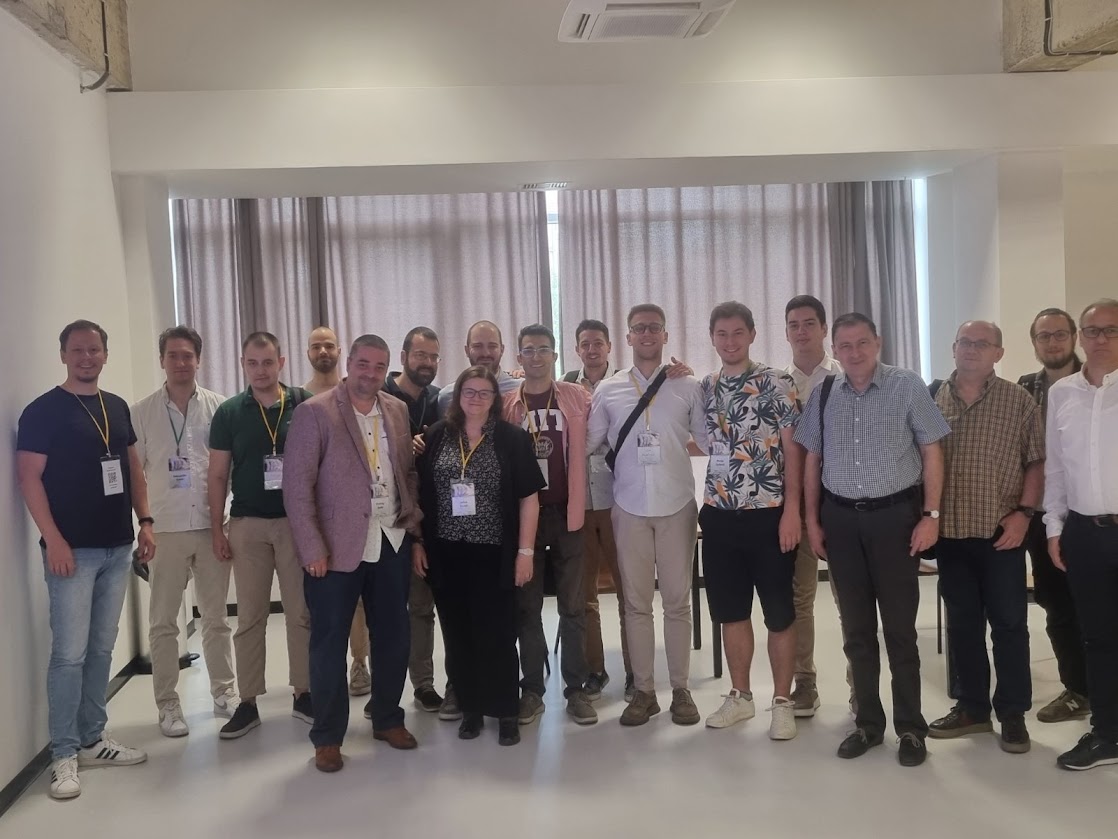
Participation in an international conference IcETRAN 2024
7.6.2024.
The STOP team participated in the International Conference IcETRAN, held in Niš, from June 3 to 6, organized by the Society for ETRAN and the Faculty of Electronics in Niš. Members of our team presented work on the application of large language models and participated in the work of this traditional conference.

Interview for K1 television
28.5.2024.
Our project investigator, Dr. Dražen Drašković, spoke in the morning program "Uranak" on television station K1 about the STOP project, which is being developed in the Laboratory for data analysis and application of artificial intelligence at the School of Electrical Engineering in Belgrade. You can watch the video HERE.
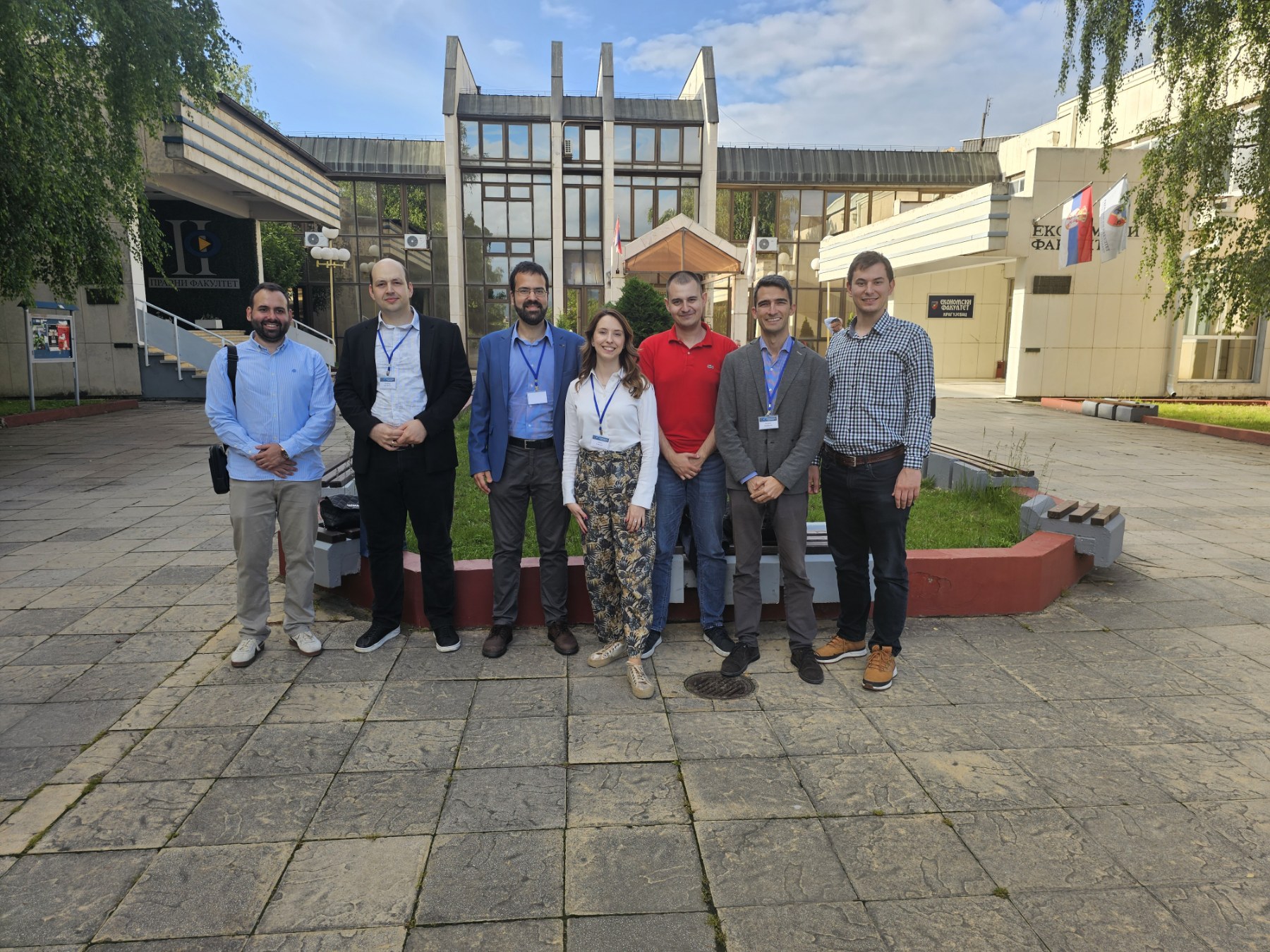
Participation in The Third Serbian International Conference on Applied Artificial Intelligence
25.5.2024.
The STOP team participated in The Third Serbian International Conference on Applied Artificial Intelligence (SICAAI) held in Kragujevac on May 23th and 24th. Our team members Drazen Draskovic and Jelica Cincovic held presentations on the topics of detecting hate speech in the Serbian language, and data analysis techniques and detecting propaganda in the Serbian language. Our paper entitled Applied Artificial Intelligence in detecting Hate Speech received the award for the best student paper in Mini-Symposium VII: Heritage Mining: Theory and Examples.
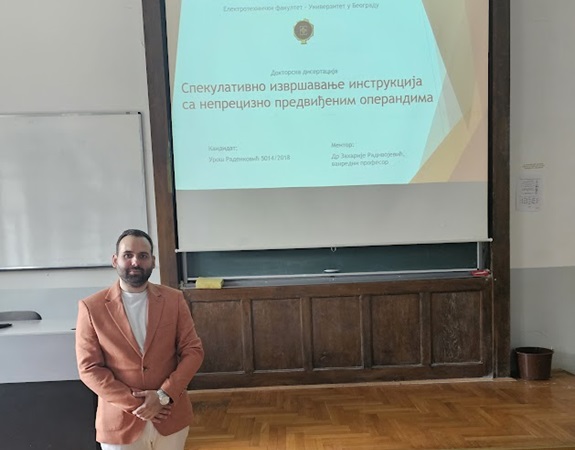
Congratulations to our team member Uroš Radenković
24.5.2024.
On Wednesday, May 22, 2024, a member of our project STOP team, Uroš Radenković, successfully defended his doctoral dissertation entitled "Speculative execution of instructions with imprecisely predicted operands". We congratulate Uroš on achieving the title of Doctor of Science in Electrical Engineering and Computing, and we wish him much success in his further scientific work!
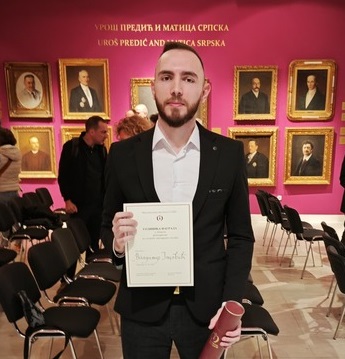
Congratulations to our team member Dr. Vladimir Jocović on the award for the best PhD
15.5.2024.
On Wednesday, May 15, 2024, a member of our STOP project team, Dr. Vladimir Jocović, was awarded the best doctorate in computer science for the year 2023. Vladimir received an award for his doctoral dissertation defended in December 2023 at the Faculty of Electrical Engineering, University of Belgrade, entitled "Automated evaluation of paper tests using artificial intelligence techniques", under the mentorship of prof. Dr. Boško Nikolić and Assoc. Dr. Saša Stojanović. The prize is awarded by the Mathematical Institute of the Serbian Academy of Sciences and Arts (MI-SASA).
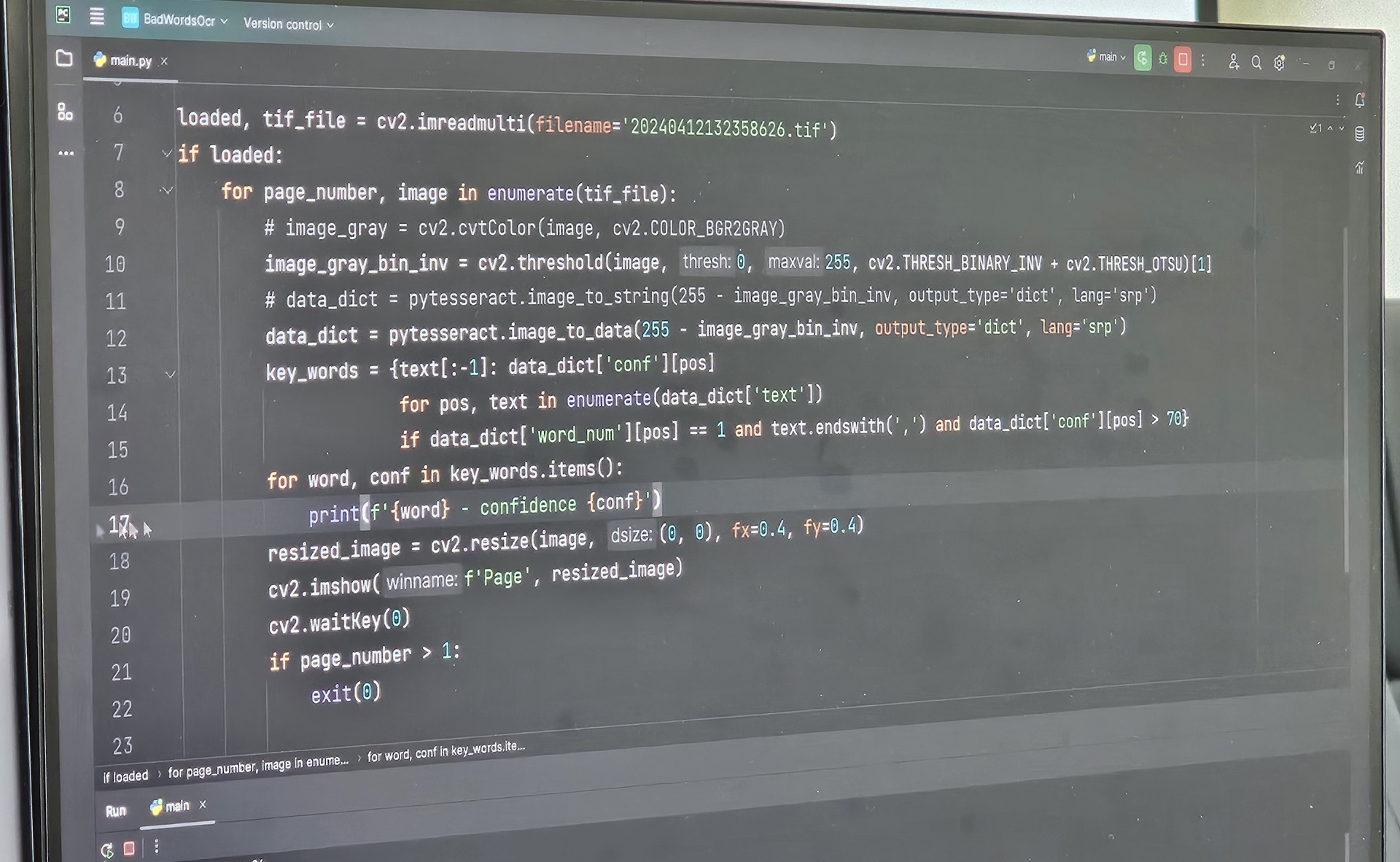
A corpus of ugly and derogatory words in the Serbian language has been created
15.4.2024.
During February and March, our STOP project team worked on collecting and developing a corpus of ugly and derogatory words in the Serbian language (result of D2.1 of the project plan). The words are collected from various sources, from websites and portals, from digital and printed dictionaries of the Serbian language, which were then scanned and where optical character recognition (OCR) techniques were used, as well as manual data labeling. The results are shown in the section Resources.
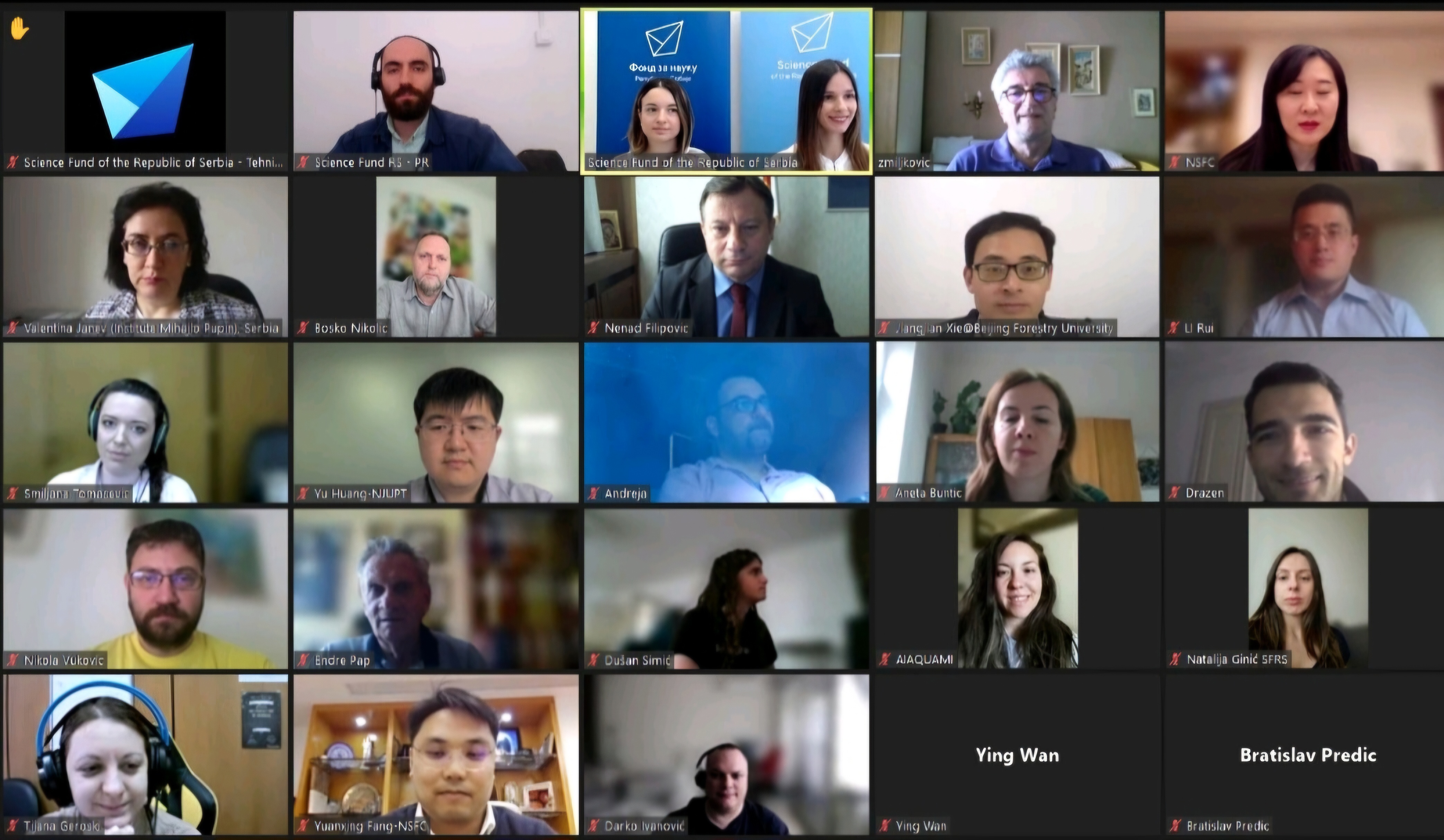
Participation in the Serbian-Chinese conference on the development of artificial intelligence
12.4.2024.
Yesterday, our team participated in a conference dedicated to the development of artificial intelligence, organized by the Science Fund of the Republic of Serbia and the National Science Foundation of the Republic of China. The aim of the conference was to introduce researchers from the two countries and to present previous projects in this field. We thank the Science Fund for being part of this interesting scientific event.
The second review meeting
3.4.2024.
📢 The STOP project team met today, in the meeting room of the School of Electrical Engineering 🏫 At the meeting, tasks for the upcoming quarter were divided 📝 We are working diligently on the first hate speech detection software in the Serbian language, and we look forward to the new challenges ahead!

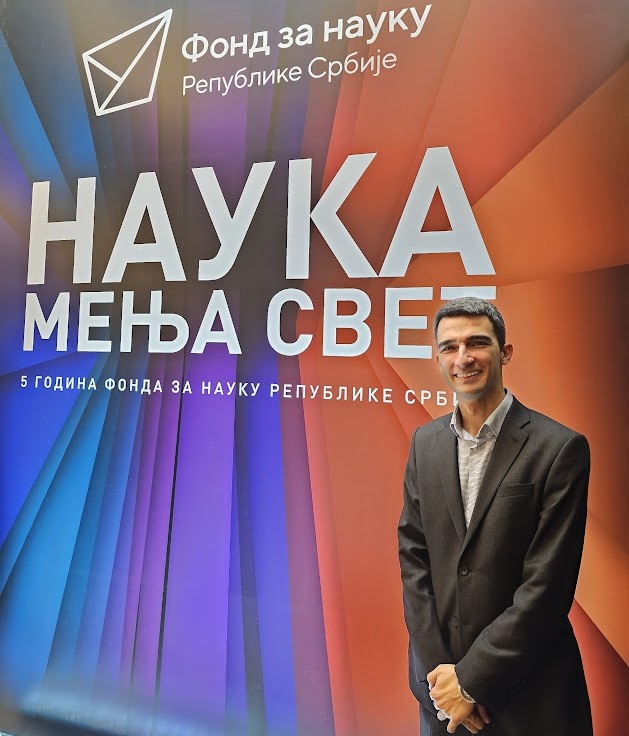
Formal ceremony of promotion of awarded projects from the project cycle "Program of young researchers - PROMIS 2023"
20.3.2024.
On Wednesday, March 20, 2024, a celebration was held on the occasion of five years of existence of the Science Fund of the Republic of Serbia. During the celebration, the attendees were addressed by the acting director of the Fund for Science Ms Milica Đurić-Jovičić, PhD, the Minister of Science, Technological Development, and Innovation, Ms Jelena Begović, PhD, as well as representatives of the European Union and the World Bank. At the celebration, managers of approved projects from the PROMIS 2023 call and projects that were awarded and received two-year funding from the Science Fund of the Republic of Serbia were especially highlighted.
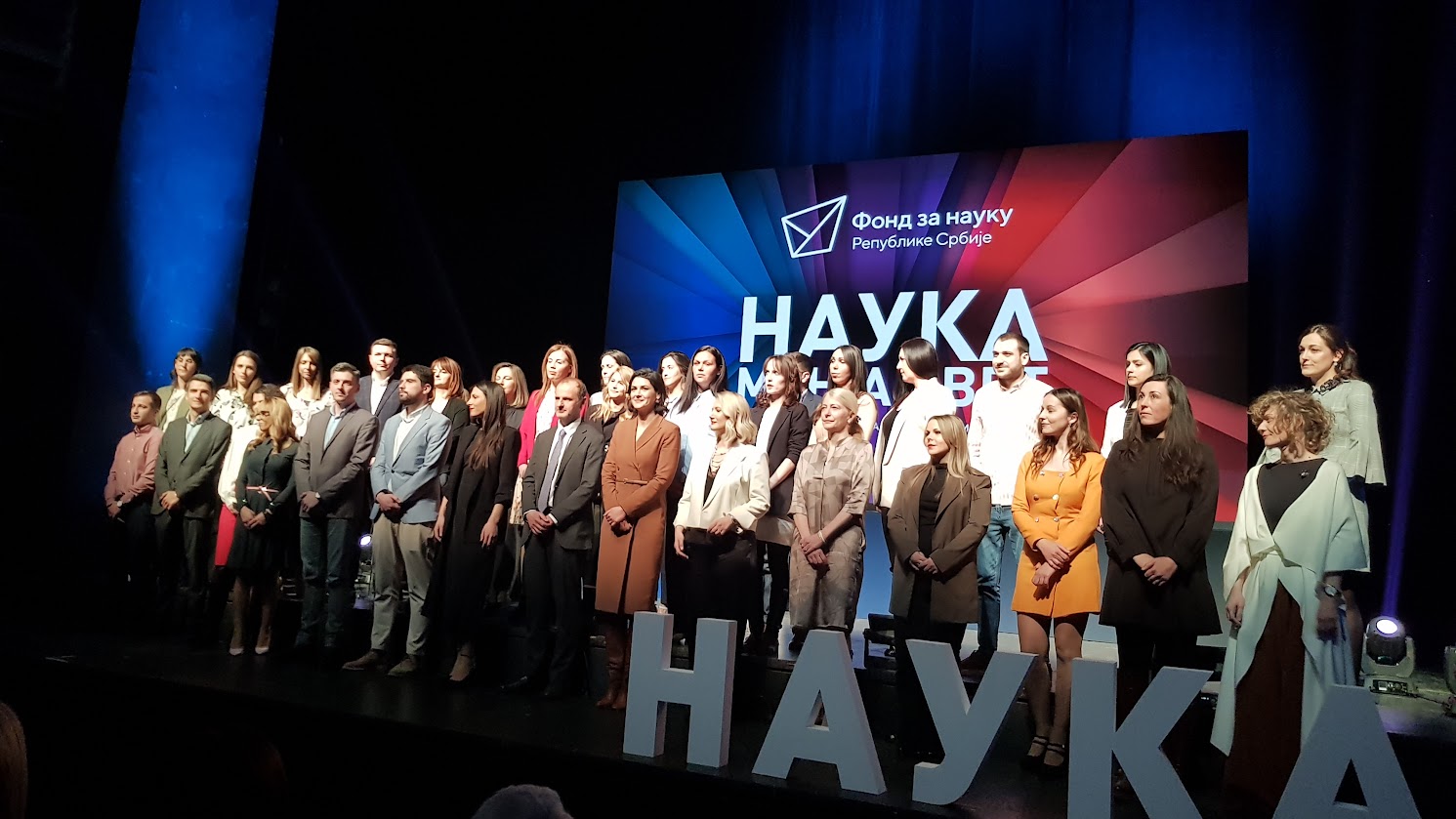
Panel on cyber security trends and challenges
15.3.2024.
As part of the jubilee 30th national scientific and professional conference "YU INFO", our team organized a special event - an expert panel, on the topic "Cyber security trends and challenges in the protection of large systems", on Tuesday, March 12, 2024 in the congress hall "Pancic A" in the hotel "Grand" at the ski resort Kopaonik.
The panel was moderated and designed by the PI of our "STOP" project, Prof. Dr. Dražen Drašković. The following researchers took part in this panel: prof. Dr. Slavko Gajin (Faculty of Mathematics in Belgrade), Ass. professor Dr. Maja Vukasović (School of Electrical Engineering in Belgrade), Master of Legal Sciences Bojana Marinković (University Newcastle, UK) and B.Sc. Eng. Marko Džida (Serbia And Montenegro Air Traffic Services Smatsa Llc).
In the past few years, cyber threats have become increasingly important for organizations and their large systems, and user data is very often under attack by malicious users (hackers). In the last year, many large software systems crashed in Serbia and the region. The panel discussed effective security measures, regulatory requirements (such as GDPR and HIPAA), good practices in organizations in Serbia and the world, the boundaries between the application of robust security measures and system maintenance, which data are dangerous to misuse, and many other questions. The panel attracted interested conference participants with interesting questions, so the discussion was fruitful and useful.

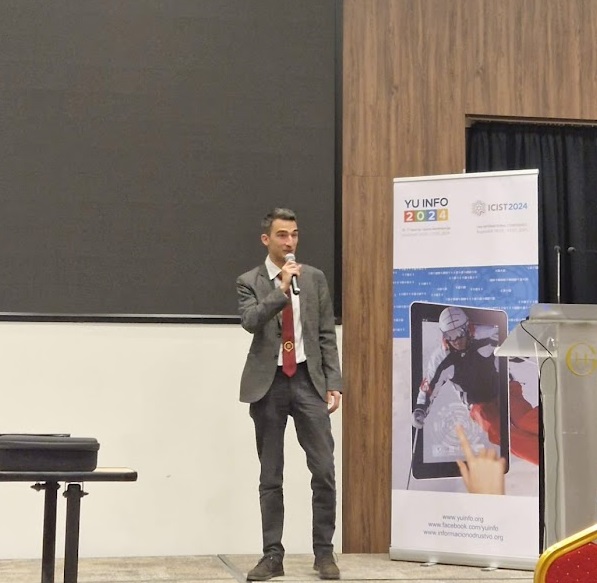
Participation of our researchers at the "YU INFO 2024" and "ICIST 2024" conferences
12.3.2024.
From March 10 to 13, 2024, the jubilee 30th ICT conference, "YU INFO 2024," and the 14th international conference, "ICIST 2024," were held at the ski resort Kopaonik, in which more than 350 participants from Serbia and the world took part. This year's conferences were mostly about artificial intelligence, big data processing, and large language models. At the conferences, 73 papers were presented in seven sessions at the national level and 92 papers at the international level. The conference program is available at the following link.
On Monday, March 10, 2024, in the scientific session "Pre-trained Large Language Models" at the international conference "ICIST 2024", our team presented a paper entitled "Enhancing Sentiment Analysis in Product Reviews: Fine-Tuning BERT for Class Imbalance and Optimal Sequence Representation", and on Tuesday, March 11, in the scientific session "Artificial Intelligence and Machine Learning" within the national conference "YU INFO 2024", a paper titled "AI-driven hate speech detection" was presented. Both scientific papers were created as a result of our project in the first two months of our research.
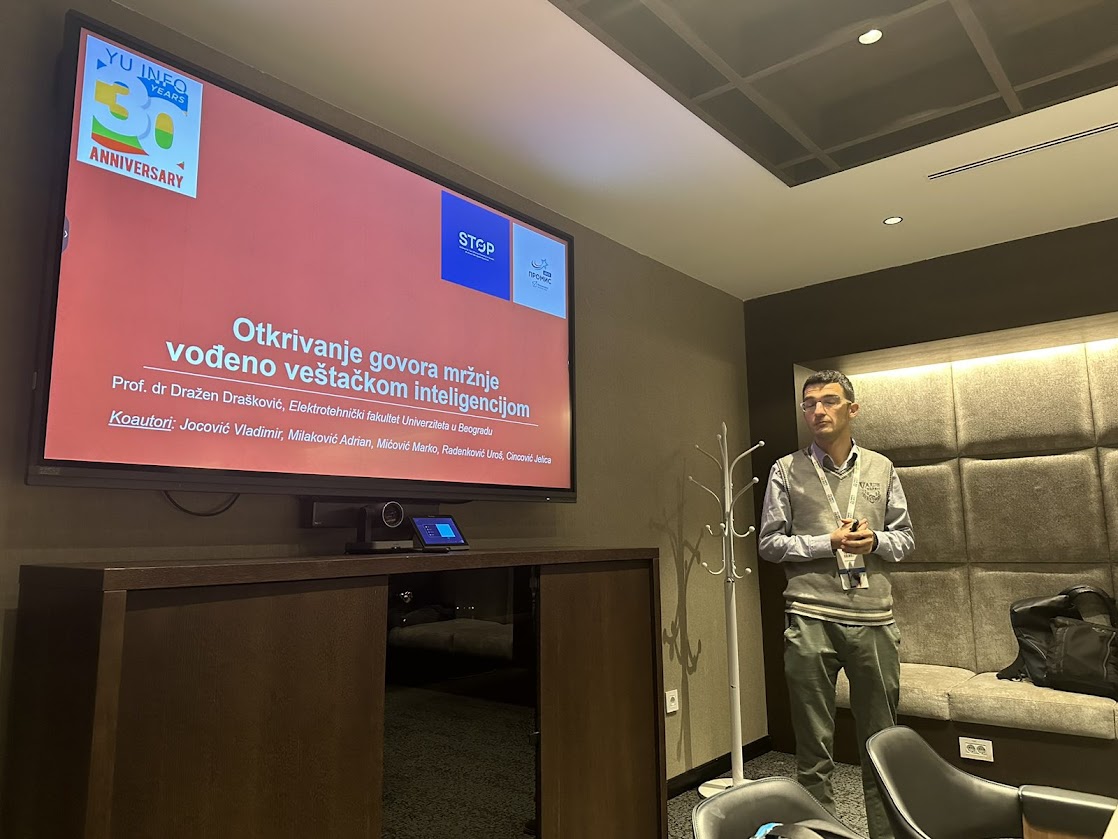
The kick-off meeting
10.1.2024.
In the meeting room of the School of Electrical Engineering, the STOP project team held an initial meeting on Wednesday, January 10, 2024. The Principal Investigator distributed the tasks to the members for the first month of the project and presented an overview of the half-yearly goals.


Project information
Acronym: STOP
The result of the researchers' collaboration will be a new software system that will detect hate speech in the Serbian language and will be of great importance in prevention of digital violence in Serbia.
Period: jan. 2024 - dec. 2025 | Budget: 140,000.00 €
The research problem addressed by this project is detecting hate speech (HS) in texts in Serbian on the Internet. Detecting and reducing HS is crucial for the safety and well-being of individuals, as it can otherwise lead to real-world harm and tragedies. Traditional methods of manually monitoring online content are time-consuming, costly, and ineffective in dealing with the vast amount of user-generated content. Therefore, there is a need for automated tools that can efficiently detect and prevent HS, which compose the primary goals of this project. This project also marks a significant milestone as the first-ever initiative to develop HS detection models designed exclusively for the Serbian language.
The impact of this project is remarkable. The software protects individuals from online abuse and violence by detecting and preventing HS. The project's research findings, including the developed dataset, NLP models, and software system, can advance the field of hate speech detection in the Serbian language and impact various sectors, including healthcare, education, science, and industry.
-
Participating Scientific-research organizations:
- University of Belgrade - School of Electrical Engineering (ETF)




Team members
The team consists of researchers from the School of Electrical Engineering, University of Belgrade

Prof. Dražen Drašković, PhD
Principal Investigator
Ass. Prof. Vladimir Jocović, PhD
Member of the project team
Marko Mićović, PhD candidate
Member of the project team
Ass. Uroš Radenković, PhD
Member of the project team
Jelica Cincović, PhD candidate
Member of the project team
Adrian Milaković, PhD candidate
Member of the project teamResources
This section will show the resources that will be published during the project.
Resource D2.1. - A corpus of ugly and derogatory words in Serbian language
published 4.4.2024.
This result contains:
- Dictionary of derogatory names by category (D2.1a)
- Dictionary of folk derogatory expressions (D2.1b)
Resource D2.a. - Web extension for removing ugly and derogatory words in the Serbian language
published 16.10.2024.
This result contains:
- A web extension for the Google Chrome web browser
Published papers
Papers from conferences and scientific journals will be published in this section.
-
D.Drašković et al., "Otkrivanje govora mržnje vođeno veštačkom inteligencijom"
D.Drašković, V.Jocović, A.Milaković, M.Mićović, U.Radenković, J.Cincović, "Otkrivanje govora mržnje vođeno veštačkom inteligencijom", Zbornik radova 30. IKT konferencije "YU INFO 2024", Kopaonik, March 2024
Link: **Zbornik u produkciji!**
Apstrakt: „Govor mržnje“ predstavlja sve što vređa pojedinca, populaciju ili pojavu na bilo kojoj osnovi, što može da bude seksualna orijentacija, pripadnost nekoj religiji, nacionalnost, rasa, pripadnost određenoj grupi, izrećeni neki stavovi ili slično. U ovom radu dat je pregled glavnih modela za detekciju govora mržnje koji su realizovani različitim tehnikama veštačke inteligencije, i prikazano je šta će biti tematika projekta našeg istraživačkog tima. -
M.Dodović et al., "Enhancing Sentiment Analysis in Product Reviews: Fine-Tuning BERT for Class Imbalance and Optimal Sequence Representation"
M.Dodović, M.Ogrizović, D.Miladinović, D.Drašković, "Enhancing Sentiment Analysis in Product Reviews: Fine-Tuning BERT for Class Imbalance and Optimal Sequence Representation", Springer's Lecture Notes in Networks and Systems, with title Disruptive Information Technologies for a Smart Society (in publication), Kopaonik, March 2024
Link: **Proceedings in production!**
Abstract: Sentiment analysis, a pivotal aspect of NLP (Natural Language Processing), of-fers profound insights into the public sentiment from vast swathes of unstruc-tured textual data. This paper presents an empirical investigation into the applica-bility and effectiveness of the BERT (Bidirectional Encoder Representations from Transformers) algorithm for sentiment analysis, particularly focused on product reviews. The research delves into the nuances of consumer language expressions and evaluates the capacity of BERT to accurately classify sentiment in a large-scale dataset of food product reviews. The results achieved through this research are significant, with the fine-tuned BERT model demonstrating high accuracies, indicating its robustness and suitability for the sentiment classification task. In addressing the challenges posed by the varying lengths of consumer reviews, this study offers a methodological analysis for selecting the optimal max_seq_length parameter within BERT’s framework. A critical balance is achieved between computational efficiency and the comprehensive inclusion of informative content within the reviews. Furthermore, the paper confronts the prevalent issue of class imbalance in sentiment analysis datasets by employing a weighted loss function during the training of BERT. This technique ensures equi-table representation and consideration of all sentiment classes, enhancing the model's accuracy and fairness. -
J.Cincović et al., "Applied Artificial Intelligence in Detection Hate Speech"
J.Cincović, U.Radenković, M.Mićović, A.Milaković, V.Jocović, D.Drašković, "Applied Artificial Intelligence in Detection Hate Speech", Springer's Lecture Notes (in publication), Kragujevac, May 2024
Link: **Springer's Lecture Notes in production!**
Abstract: Book of Abstracts of the Third Serbian International Conference on Applied Artificial Intelligence [editor: Nenad Filipović] (ISBN: 978-86-81037-79-9) -
D.Drašković et al., "Data analysis techniques and detection of propaganda in Serbian online media in 2023"
D.Drašković, M.Ogrizović, M.Dodović, M.Obradović, "Data analysis techniques and detection of propaganda in Serbian online media in 2023", Springer's Lecture Notes (in publication), Kragujevac, May 2024
Link: **Springer's Lecture Notes in production!**
Abstract: Book of Abstracts of the Third Serbian International Conference on Applied Artificial Intelligence [editor: Nenad Filipović] (ISBN: 978-86-81037-79-9) -
L.Hrvačević et al., "Development of a web system with an automated question generator based on large language models"
Hrvačević Luka, Cincović Jelica, Milaković Adrian, Jocović Vladimir, Matvejev Valerijan, Drašković Dražen, "Development of a web system with an automated question generator based on large language models," 2024 11th International Conference on Electrical, Electronic and Computing Engineering (IcETRAN), Niš, Serbia, 2024. (DOI number assignment in progress!)
Link: **IEEExplore**
Contact Us
Location:
Belgrade 11000, Bulevar kralja Aleksandra 73
Email:
stop@lists.etf.rs

